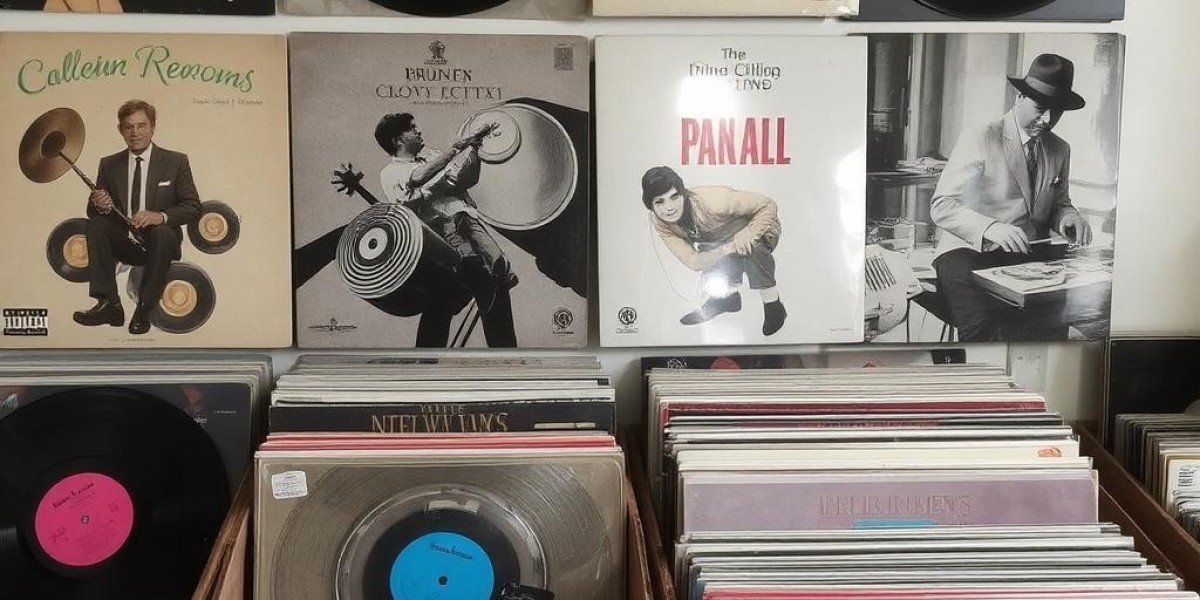Vinyl records were once the lifeblood of Bollywood’s musical culture. They captured timeless melodies, immortalized legendary voices, and brought cinema’s emotional core into people’s homes. But not every Bollywood vinyl record found a warm welcome. Some were pulled from shelves, banned from airwaves, or withdrawn from circulation due to political tensions, controversial lyrics, religious sensitivities, or moral policing. These banned records, often shrouded in mystery and urban legend, are now prized by collectors for their rarity and the stories they carry. Here's a closer look at Bollywood vinyl records that were banned—and the reasons behind their censorship.
One of the most well-known cases involves the soundtrack of Kissa Kursi Ka (1977), a satirical political film directed by Amrit Nahata. The movie was a direct parody of then Prime Minister Indira Gandhi and her son Sanjay Gandhi, mocking their governance during the Emergency period. Unsurprisingly, the film was banned outright, and its prints were reportedly destroyed by the government. The vinyl soundtrack, though never officially released to the public, was also suppressed. Few test pressings were believed to exist, making this one of the rarest Bollywood vinyls. The ban was part of a broader clampdown on dissent, and today, any surviving record of this soundtrack is a collector’s holy grail.
Another notable case is Pati Patni Aur Tawaif (1990), a B-grade drama with a sensational soundtrack that included double entendre and provocative lyrics. While the film itself did not cause much stir, the soundtrack faced backlash from conservative groups for being vulgar and morally degrading. Complaints led to the vinyl being pulled from shelves in certain Indian states, especially in North India. Though not formally banned nationwide, the record saw limited circulation and radio play. Its scarcity and scandalous reputation now make it a sought-after oddity among collectors of fringe Bollywood vinyl.
In the 1980s, the soundtrack of Garam Hawa (1974) also faced unofficial suppression, despite the film being critically acclaimed. The movie dealt with the trauma of Partition and the plight of Muslims who chose to remain in India. Though the film’s release was delayed due to its sensitive subject, its vinyl record was similarly slow to hit the market. While it wasn’t officially banned, political tension around communal themes made retailers cautious. The songs, steeped in sorrow and protest, were sometimes avoided by state broadcasters. Today, the LP version is incredibly rare and remembered not just for its haunting music but also its historical baggage.
The soundtrack of Bandit Queen (1994), based on the life of Phoolan Devi, created major controversy upon release. The film’s raw portrayal of caste violence and sexual assault drew protests, and the music—which included stark rural folk compositions—was seen by some as too gritty and uncomfortable for mainstream consumption. While the vinyl version of the soundtrack had limited production runs in international markets, it was never widely distributed in India. The album’s graphic language and unconventional structure, far removed from Bollywood’s melodic norms, made it a record few dared to stock. Its absence from domestic stores for years made it a banned item in all but official decree.
One lesser-known but strange case is the soundtrack of Unchi Udaan (1979), an obscure film that included a song with political undertones referencing worker protests and slogans lifted from socialist movements. At the time, labor unrest in Bombay’s textile mills was at a boiling point. Authorities feared the soundtrack might inspire unrest, leading to pressure on record labels to pull it. The film flopped, but its vinyl soundtrack became a legend in leftist circles and was quietly passed around among student groups. Today, any surviving copies are rare and symbolic of cinema’s uneasy relationship with protest.
Even mainstream stars weren’t immune to bans. A song from the film Aandhi (1975), believed to be based on Indira Gandhi’s life, was initially cut from the vinyl edition under political pressure. The album was reissued later with all tracks intact, but original pressings without the controversial track are still floating around. Collectors often debate which version is more valuable—the censored or the complete one. The film and its music eventually gained acceptance, but the initial suppression left a lasting mark on its vinyl legacy.
There were also instances where religious groups protested specific tracks. In Razia Sultan (1983), the song “Khwaab Ban Kar Koi Aayega” was considered too sensual for a film set in Islamic history. Though the film remained in circulation, certain shops refused to stock the record in more conservative areas. Religious sensitivities around the depiction of historical figures in song created localized bans and reduced the record’s availability, enhancing its rarity over time.
These cases show how Bollywood vinyl was never just about music—it was deeply entwined with politics, culture, and public sentiment. What gets banned often reveals more about a society’s anxieties than its rules. For collectors, these records are not only musically significant but also rich historical artifacts. They remind us that art, even in musical form, can challenge authority, provoke thought, and push boundaries.
Bollywood Vinyl Records Classical Vinyl Records Devotional Vinyl Records Dialogue Vinyl Records Dj Remix Vinyl Records English Vinyl Records Film Hits Vinyl Records Ghazals Vinyl Records Instrumental Vinyl Records Non Filmi LP Records Punjabi Vinyl Records Rare Vinyl Records Online Vinyl Shop Online Chardham Hotels in chardham


![Application Management Services Market Size, Share & Trend | Growth Analysis Report [2035]](https://snapfier.s3.amazonaws.com/upload/photos/2025/05/cz8Dl9ZuWi3Vx7c5woUd_23_88f5f338cbdf6125440bb49713b14ca3_image.jpg)






